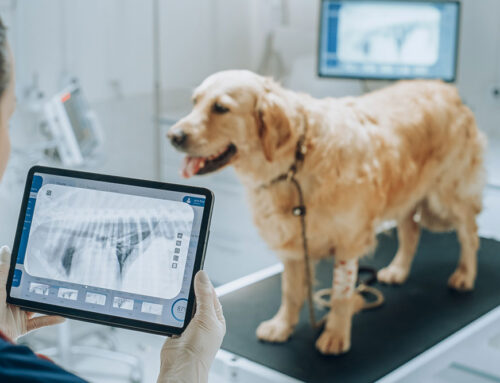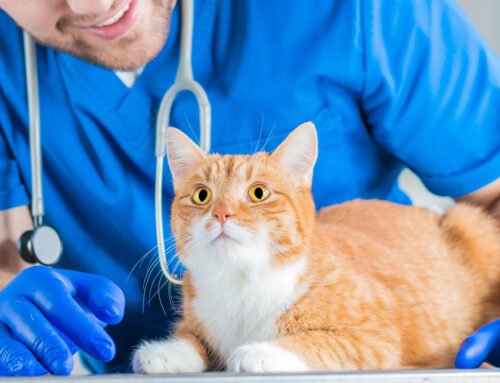Understanding When Pet Vomiting and Diarrhea Become Emergencies
When your pet begins to show signs of vomiting or diarrhea, it’s natural to be concerned. Recognizing which symptoms are cause for alarm and which are not can be crucial to your pet’s health. Here are key symptoms that warrant immediate attention:
Recognizing Concerning Symptoms
- Blood in vomit or stool: The presence of blood may indicate serious conditions such as ulcers, tumors, or severe infections. Immediate veterinary attention is necessary to diagnose the underlying cause.
- Repeated vomiting, more than three times in a 24-hour period: Frequent vomiting can lead to dehydration, electrolyte imbalances, and the inability to retain necessary nutrients and medications. This can rapidly become critical if not addressed.
- Severe lethargy or unresponsiveness: These symptoms could signal shock, severe dehydration, or systemic infection. Immediate intervention is crucial to stabilize your pet.
- Signs of pain or extreme discomfort: Pets may exhibit restlessness, whining, or a hunched posture, indicating abdominal pain, which might be due to pancreatitis or gastrointestinal obstruction.
- Diarrhea that persists for more than a day: Chronic diarrhea can lead to dehydration and nutrient deficiencies, weakening your pet’s immune system and overall health.
For more detailed symptom guidance, visit our Vomiting and Diarrhea page.
Causes of Vomiting and Diarrhea
Vomiting and diarrhea can result from a variety of factors, ranging from minor to severe. Common causes include:
- Dietary indiscretion: Pets often ingest items they shouldn’t, leading to gastrointestinal irritation. This ranges from spoiled food to non-food items.
- Infections: Viral or bacterial infections, such as parvovirus in dogs or panleukopenia in cats, can be life-threatening without prompt treatment.
- Parasites: Intestinal parasites like roundworms, hookworms, and giardia can cause persistent gastrointestinal issues.
- Chronic diseases: Conditions like kidney disease or diabetes can cause vomiting and diarrhea as secondary symptoms due to the body’s inability to process toxins or regulate blood sugar levels.
More serious conditions presenting these symptoms include:
- Poisoning: Ingestion of toxic substances like household chemicals, plants, or human medications can lead to severe gastrointestinal and systemic reactions.
- Obstructive disorders: Blockages in the intestines are medical emergencies that can cause severe pain, vomiting, and risk of intestinal rupture if not treated promptly.
To learn more about potential toxins, visit our Pet Toxins and Poisoning page. Additional prevention tips are available at Preventing Pet Emergencies.
When to Seek Veterinary Care
Knowing when to seek emergency care is crucial. If your pet exhibits any of the following, seek immediate veterinary attention:
- Persistent vomiting or diarrhea: If these symptoms don’t resolve with simple dietary changes or fasting, they may indicate a more serious underlying issue.
- Signs of dehydration: Symptoms include dry gums, sunken eyes, or decreased skin elasticity. Dehydration can quickly become life-threatening, especially in smaller or older pets.
- Weakness or collapse: These signs may suggest severe dehydration, anemia, or shock, requiring immediate resuscitation and supportive care.
For emergency procedures, refer to our Emergency Contact page.
Diagnostic and Treatment Options at Our Center
Diagnosing Vomiting and Diarrhea
At the Veterinary Emergency and Specialty Center of Northern Arizona, we use a variety of diagnostic tools to determine the cause of your pet’s symptoms:
- X-rays: To detect foreign bodies, obstructions, or structural abnormalities in the gastrointestinal tract.
- Blood tests: To assess organ function, detect infections, and evaluate electrolyte and hydration status.
- Ultrasounds: To provide detailed images of abdominal organs, helping identify issues like organ enlargement, masses, or fluid accumulation.
Timely diagnosis is critical to effective treatment and preventing complications. Meet our skilled team on our Team page.
Treatment Options for Your Pet
Depending on the underlying cause, treatment options may include:
- Hydration therapy: Intravenous fluids can correct dehydration and electrolyte imbalances quickly.
- Medications: Anti-emetics and anti-diarrheals can provide relief and allow the gastrointestinal tract to heal.
- Surgery: For obstructive disorders, surgical intervention may be necessary to remove foreign bodies or correct twisted intestines, preventing further complications.
Preventing Vomiting and Diarrhea in Pets
Preventive Measures and Care Tips
Preventing gastrointestinal issues starts with basic pet care:
- Proper diet management: Ensure your pet’s diet is balanced and suitable for their age, size, and health conditions. Avoid sudden dietary changes.
- Regular health checks: Routine veterinary visits can catch potential issues early.
- Vaccinations: Keep vaccinations up-to-date to protect against diseases that can cause vomiting and diarrhea.
Awareness of household hazards that can lead to these issues is also important. For detailed advice on managing emergencies, see our Bloat and Gastric Issues page, and consult the AAHA’s Pet Emergency Guide.
FAQs About Pet Vomiting and Diarrhea
Answers to Common Concerns
- “How long should I wait before calling a vet?”: If symptoms persist beyond 24 hours or are accompanied by concerning signs like lethargy or blood, contact your vet immediately.
- “What can I give my pet for mild cases?”: For mild cases, withhold food for 12-24 hours and offer small amounts of water. After fasting, introduce a bland diet of boiled chicken and rice in small quantities..
Supporting Your Pet Through Recovery
Post-Treatment Care and Monitoring
After treatment, monitoring your pet closely is important for a full recovery:
- Diet adjustments: May be necessary depending on the severity and cause. Gradually reintroduce regular food over several days.
- Activity levels: Monitor and adjust based on your pet’s recovery stage. Rest is crucial for healing, so limit exercise initially.
Be vigilant for signs of recovery or if symptoms persist or worsen, which would require a return visit to the clinic.
At the Veterinary Emergency and Specialty Center of Northern Arizona, we provide professional, compassionate care to ensure your pet returns to health swiftly. To schedule an appointment, visit our Request Appointment page.








Leave A Comment